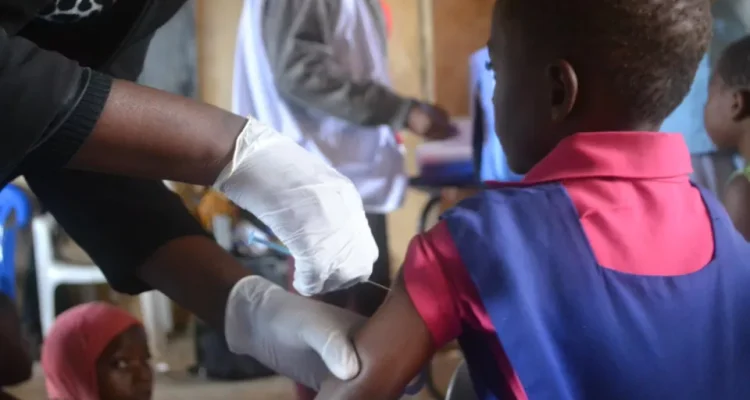
The international medical humanitarian organization Médecins Sans Frontières (MSF) has embarked on a Human Papilomavirus (HPV) vaccination initiative targeting young girls between 9 and 14 years old in Malawi’s Phalombe District.
This catch-up vaccination campaign, which comes to an end on Monday next week, has targetted 30,000 young girls.
The initiative, according to World Health Organisation-WHO, is the most efficient way of preventing cervical cancer among women at adulthood.
“This vaccination is an excellent news for the young girls of the districts. Malawi has the highest mortality rate related to cervical cancer in the world. However, we know that this cancer is highly preventable through HPV vaccination for all girls of this age”, explains Dr George Chilinda, MSF onco-surgeon at Queen Elisabeth Central Hospital-QECH.
“Among the cervical cancer patients, we receive at the hospital, a lot of them arrive at a too advanced stage of the disease to allow any curative treatment in our settings. This is very sad and frustrating when you know that vaccination, along with early detection, can prevent this disease to occur or spread,” he adds.
News has it that cervical cancer ranks high in Malawi and as such prevention remains the main priority to reduce the cancer burden for women in the country.
The disease is most of the time triggered by the Human Papilloma Virus (HPV) which is transmitted most often during sexual intercourse.
“The vaccination was not very active during COVID time, for different reasons but mainly due to poor sensitization and awareness on the importance of this vaccine as a prevention for cervical cancer. It is crucial that families know that, on a daily basis, they can access to this vaccine in the health centers of their districts,” says Alice Authier, MSF Deputy Head of Mission in Malawi.
She notes, however, that the most effective way to reach out massively to the 9-14-year-old girls and prevent them to contract the virus, is by going to schools to offer the vaccination.
Aulier says: “To do so, MSF has been supporting the Ministry of Health to help reach most of the 30.000 young girls aged from 9 to 14 years old, in schools of Phalombe District.”
Currently, sensitization on the need and the use of HPV vaccine have been provided to 336 Health Surveillance Assistants of the district through 11 sessions.
MSF officials say that the Head Teachers and Schools Health Teachers of the 91 schools were also involved in raising awareness to the girls’ parents about the vaccine and help organize the vaccination.
Since 2017, MSF has been developing a comprehensive cervical cancer programme in Malawi with the ambition of improving the access to vaccination, screening, early diagnosis, treatment and – if needed, palliative care, for the women of Blantyre and Chiradzulu districts.
The program aims to develop new approaches and targets all stages of the cervical cancer disease course.
Health experts likewise MSF says comprehensive cervical cancer control requires primary prevention (HPV vaccination), secondary prevention (screening and treatment of precancerous lesions), tertiary prevention (diagnosis and treatment of invasive cervical cancer), and palliative care.
Follow us on Twitter:














